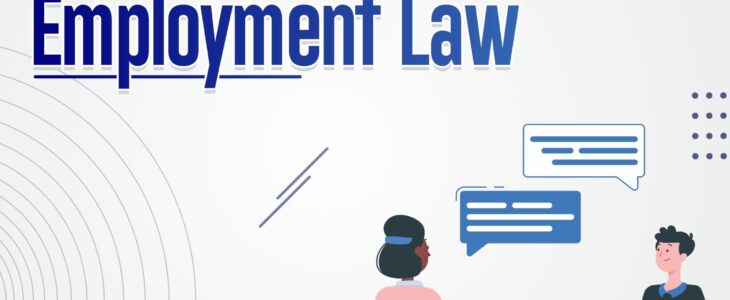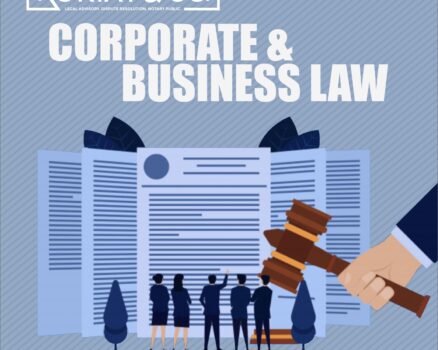
As 2023 winds down, employers and employees must be remined that every end of year in Nigeria usually comes with certain vicissitudes of fortunes or misfortunes in the world of work. These vicissitudes come in different fashions like promotions or demotions, reduction or nonpayment of salaries or earned bonus, transfers or change of job descriptions, suspension, termination or dismissal, leave or retirement, denial of gratuity or payment of inadequate severance benefits, and so on.
Each of the above developments may have far-reaching consequences on the employer’s business or to the worker, if not well handled. How each of these realities should be approached may differ, depending on the facts of each case. It is therefore crucial to seek legal counsel, rather than trusting instincts.
From our experience in conducting employment litigations, the following are just a few nuggets to guide Nigerian employees and employers to avoid either loss of legal rights or exposure of their business to liability claims:
1. Promotions are hardly contestable unless on ground of discrimination or victimisation which must be backed by hard evidence of such allegations. The onus of proof is usually on the employee to prove that he is entitled to a promotion of which he has been unfairly denied. However, the onus to justify demotions usually rests on the employer once the worker can show that he has done nothing wrong (in terms of performance and conduct) to deserve a demotion.
2. Salaries are undeniable rights of employees which can be recovered by legal action, even after the employee’s exit from a company’s service. It is an unfair labour practice to reduce or withhold employee’s salaries, unless doing so is in accordance with his contract. Bonus rights are not absolute unless they are enshrined in an employment contract. If bonus is tied to profit declaration or sales target, the employee must have evidence of the figures to succeed in a claim for such bonus. Where bonus is at the discretion of the management, unless on discrimination ground or palpable unfairness, denial of such bonus may be hard to challenge.
3. Transfer of staff to another location or change of job description are ordinarily not unusual and cannot be grounds of legal action by an employee, especially if they are based on the company’s business exigencies. However, a change of job description can be relied on by an employee if he is unable to meet the performance index or target set by the company. Where a company has failed to provide the necessary support for an employee who has been transferred to a new work station or department or assigned a new job description in a way that shows that the employee was being set up to fail, then the employee may successfully plead the unfair labour practice if the company disengages him for poor or non-performance.
4. Indefinite suspension is unlawful. So is suspension without pay unless it is justified by the contract and the facts of the case. Termination and dismissal must be in accordance with the employment contracts. Please note that employers are now required to state and justify the reasons for disengaging an employee in Nigeria. Payment of salary in lieu of notice must be made contemporaneously with the delivery of termination letter to the employee. It is unlawful for employer to serve an employee a termination letter and pay the salary in lieu on different dates. Please note that an employee who accepts his terminal benefits following his disengagement cannot later challenge his employer for unlawful termination unless he can show that he, indeed, disapproved and protested against the payment of terminal benefits.
5. Fairness of a staff dismissal process is key. All employers must ensure that dismissal on ground of misconduct must be preceded by a fair hearing process, detailing the issuance of query and opportunity given to the employee to defend himself (at a panel hearing or by written representation) and a final report by the company finding the employee culpable. Please note that a copy of the report must be shared with him before his dismissal or together with his dismissal letter. The trial process must be fair and transparent to avoid the implication of witch-hunt, victimisation or any form of unfairness against the employee. An employer who delays in disciplining a worker over a misconduct is deemed by law to have condoned it and cannot wake up later to dismiss an employee over such a stale misconduct allegation.
6. Leave right and retirement benefits are both matters of contract and law. Denial of either leave right or retirement benefits may amount to unfair labour practice. Courts have held that termination of services due to medical leave or maternity leave, without more, is an unfair labour practice. Compulsory retirement is akin to dismissal and same can be challenged on solid grounds if the employer is unable to justify the basis for the compulsory retirement.
7. Gratuity is a matter of contract only. No law provides for gratuity payment in Nigeria. Pension is mandatory under the Pension Reform Act (PRA), but not gratuity. So, without express provision for gratuity in an employment contract, any claim for such benefits is bound to fail. Where a contract provides for gratuity, then an employee is entitled to both pensions and gratuity. Parties must ensure that the formula for calculating gratuity is clearly defined and ascertainable from the Employee Handbook or any other HR policy governing the employment relationship. The PRA has fixed the formula for calculating pensions which cannot be waived or changed. Gratuity or ex gratia payment at the discretion of the management may be hard to challenge if such payment is denied unless the employee can show that the management has exercised its discretion discriminatorily and unfairly. Reliance on other ex staff who have been previously paid the same benefits will help if such claims can be established by tendering evidence of such payments.
8. Negotiation and execution of severance agreement during disengagement should be done under the guidance of a lawyer. All other rights of the employee, which are omitted during the negotiation, may be foreclosed by such contract, and lost forever! Employer’s references are very crucial to employee’s future employment and, so, should not be left out of settlement negotiations. It is wrong for an employer to give false or malicious reference in respect of an ex staff. Where an employee loses a job as a result of a malicious reference of an ex-employer, the latter can be sued for the tort of unlawful interference with a contractual relation.
9. The amount of damages to be awarded by the court is never fixed unless for special damages dealing with each specific loss which an employee is able to prove. Unpaid salaries, leave allowances, gratuity, pensions, bonuses, terminal benefits, reimbursements etc. are some examples of special damages for which specific particulars must be set out and cogent evidence led in proof thereof. Employees are enjoined to mitigate their loss by seeking new employment after an unlawful disengagement by a company. Please note that a suspended employee is not required to seek another job whilst on suspension. Hence, in a case founded on indefinite suspension, outstanding salaries may be awarded by the court up to the day of judgment or the date the action was filed.
10. National Industrial Court is the only court vested with jurisdiction to determine any employment dispute in Nigeria. It has been held by Nigerian courts that employment matters, though may be settled by arbitration, will not be struck out or stayed simply because the contract enjoins the parties to go to arbitration instead of the National Industrial Court. The National Industrial Court can interprete and enforce arbitral award arising from the parties’ mutual settlement by arbitration but no party can object to the jurisdiction of the court to hear an employment matter on the ground that the contract contains an arbitration agreement. Please note that defamation or any other tort action can only be litigated at the High Court of a State or the Federal Capital Territory Abuja, notwithstanding that such tort may have arisen from employment relations. Also, loans given by banks to their employees may be treated as being given in the course banking relations or creating banker-customer relationship in order to vest the High Court with jurisdiction over actions for such loan recovery, notwithstanding that the parties have employment relations. The National Industrial Court is a court of facts and law. So, both parties must come with their compelling facts and evidence as well as the relevant laws. Employees should remember to promptly keep their employment letters, confirmation letters, promotion letters, salary review letters, photocopy of their identity card, payslips, staff handbook, termination letter and other notices from the employer circulated via email or intranet. It is a standard practice in Nigeria (one that courts have taken judicial notice of) that once an employee is disengaged, he or she loses access to the company’s email system or intranet or database and as such would be unable to download any documents for ventilation of his or her claims against the company. Without the right evidence many legal rights will be lost without remedy. So, make hay while the sun shines!
Kayode Omosehin is the Managing Principal of Koriat & Co., a commercial law firm in Lagos, Nigeria.
**********************************************************************************
ABOUT KORIAT & CO.
We are a commercial and litigation law firm in Nigeria with network of lawyers and consultants in Ghana, Kenya and Rwanda. We represent clients in multiple jurisdictions.
The above article is not legal advice and does not automatically make our readers our clients unless they specifically instruct us to act or represent them in any way.
Please contact Koriat & Co. through admin@koriatlaw.com or 09067842241 if you require additional information about or assistance on employment law advice or litigation.



